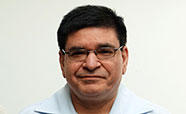The University of Otago, Christchurch offers a one-year biomedical sciences honours programme to students who have completed and performed well in a BBiomedSc or BSc degree from any New Zealand university in approved disciplines.
The Bachelor of Biomedical Sciences with Honours (BBiomedSc(Hons)) is an excellent stepping stone to PhD study and towards a career in health research in a range of areas including: genetics, biochemistry, cancer biology, infectious diseases, molecular biology, and pharmacogenomics.
The Master of Biomedical Sciences (MBiomedSc) is also offered at the University of Otago, Christchurch.
Practical training towards a career in health research
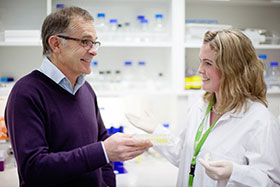 Hands on training in scientific methods is the focus of the biomedical sciences honours programme. Graduates will develop the skills and attitudes required to progress to PhD study or on to other careers.
Hands on training in scientific methods is the focus of the biomedical sciences honours programme. Graduates will develop the skills and attitudes required to progress to PhD study or on to other careers.
Each student completes a supervised research project in a laboratory of their choice. The research dissertation is the major component of the BBiomedSc(Hons) assessment.
The programme offers an intensive research training experience consisting of six weeks of tutorial sessions led by expert researchers, integrated with practical sessions based in the Department of Pathology and Biomedical Science's laboratories.
Research projects in the biomedical sciences
A research project is the major component of the biomedical sciences honours programme. Each student undertakes a research project and completes a dissertation which comprises 85% of the final grade.
Prospective students are encouraged to directly contact supervisors about the projects which are of interest to them. Our supervisors may occasionally be able to create or customise a project tailored to your research interests.
2024 BBiomedSc(Hons) research projects
The following research projects are available for the 2024 intake of biomedical sciences honours students:
- The action of myeloperoxidase in infection and inflammation
- Developing new therapies for reducing risk of breast cancer
- Impact of mitochondrial dysfunction on haematopoietic stem cell differentiation
- Improving genetic health through RNA diagnostics
- Taming the aryl hydrocarbon receptor for molecular analysis
BBiomedSc(Hons) research projects undertaken in 2023
- Adipocyte markers as predictors of progression in men with prostate cancer
- Can we attenuate inflammation and oxidative stress in people with metabolic syndrome?
- Crippling the antioxidant defenses of Streptococcus pneumoniae
- Detection of Kingella kingae and Staphylococcus aureus infections in children using cell-free DNA
- Establishing a novel 3D breast cancer-adipocyte co-culture model
- How neutrophil-microbiome interactions fuel inflammation in colorectal cancer
- Investigating novel protein modifications in cancer
- Oxidative stress and human ageing
- Nanopore sequencing of the pharmacogene CYP2C19 in a Ngāti Porou cohort
- CRISPR-Cas detection of Legionella in clinical blood samples
Completed biomedical sciences honours projects
Over 40 students have graduated our biomedical sciences honours programme. Research projects have been completed in one of many areas of biomedical research including: biochemistry, cancer biology, molecular pathology, genetics and microbiology.
Biomedical sciences honours course work
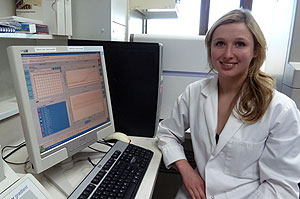 Students begin the programme with six weeks of tutorials and practical laboratory sessions at the start of semester one. This course work consists of several modules covering topics including:
Students begin the programme with six weeks of tutorials and practical laboratory sessions at the start of semester one. This course work consists of several modules covering topics including:
- genome sequencing and genotyping
- bioinformatics
- gene expression
- protein biochemistry
- electrophoresis and blotting
- mass spectrometry
- cell culture
- genetic manipulation
- flow cytometry and microscopy
- experimental design and data analysis
Each module will include a mix of theory, practical demonstration, troubleshooting and critical analysis of published literature.
The goal is for our students to acquire an understanding of the various technologies that are available in biomedical research.
Supplementary lectures throughout the year will focus on broader research skills including scientific writing and presentations, ethics, biobanking and translational research.
A written examination is held at the end of the coursework component. This assessment comprises 15% of the final grade.
Graduate profiles
Some of our graduates share their study experiences at the University of Otago, Christchurch campus.
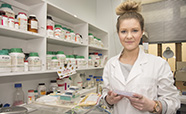
Rebekah Crake
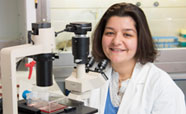
Bee Bathish
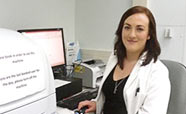
Emma Spencer
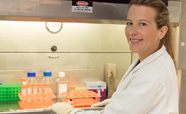
Annika Seddon
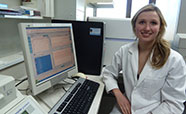
Hannah Kennedy
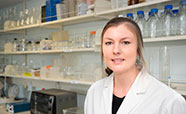
Teagan Hoskin
The research environment
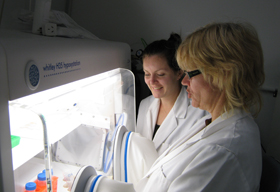 The Department of Pathology and Biomedical Science at the University of Otago, Christchurch provides an excellent environment in which to undertake intensive training in the biomedical sciences.
The Department of Pathology and Biomedical Science at the University of Otago, Christchurch provides an excellent environment in which to undertake intensive training in the biomedical sciences.
The Department has over 50 academic staff members that include a mix of established and emerging New Zealand biomedical research leaders.
There are typically more than 20 PhD students enrolled at any one time, and we have graduated over 100 PhDs since 1978.
This short video explains the course and shows some of the laboratories in which students will be located.
Contact a supervisor
Entry requirements for BBiomedSc(Hons)
The BBiomedSc(Hons) programme is offered through the University of Otago, Christchurch, to students who have completed an approved degree, such as a BSc or BBiomedSc in a related field from the University of Otago, or an approved degree from another University.
A Minimum B+ average for appropriate 300-level papers.
Applicants must normally have passed papers worth at least 108 points, at 200-level or above, during the third year of study for the degree of Bachelor of Biomedical Sciences (or equivalent).
For students wishing to transfer from another New Zealand University we adjust for papers being worth 15 points or 20 points. Thus a transferring student must generally:
- Have completed their third year full-time with a minimum of 105 points
- Have at least 90 points at 300-level
- Amongst those 300-level papers demonstrate a multi-disciplinary mix of papers
- With the rest of 15 points at 200-level or above.
Admission to the programme is subject to approval of the Board of Studies. The Board must be satisfied that the candidate has the ability and experience to proceed to the degree.
Before enrolment you will need to arrange a proposed supervisor and a project outline for your dissertation. Contact the programme coordinator Professor Madhav Bhatia or a potential supervisor, to obtain these details.
Places on this course are limited.
The University of Otago, Christchurch reserves the right to cancel the programme if there are insufficient enrolments in any given year.
Further information about the programme
Contact the BBiomedSc(Hons) Course Coordinator if you have general enquiries about the programme.
Download the BBiomedSc(Hons) brochure (PDF)
Ready to apply?
This information must be read subject to the statement on our Copyright & Disclaimer page.
Regulations on this page are taken from the 2023 Calendar and supplementary material.
